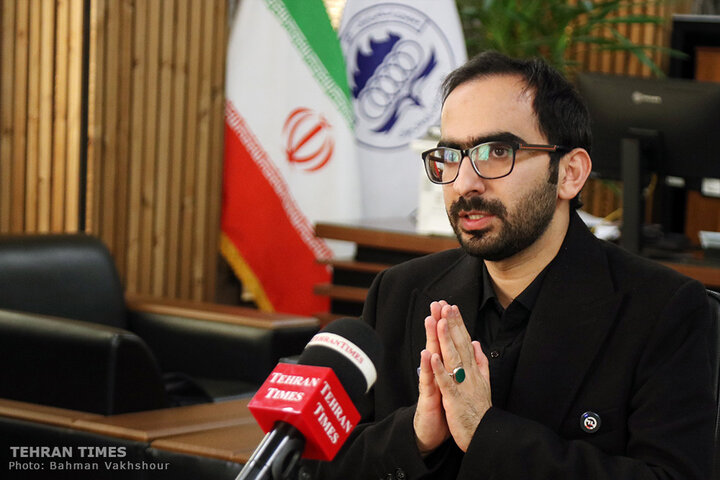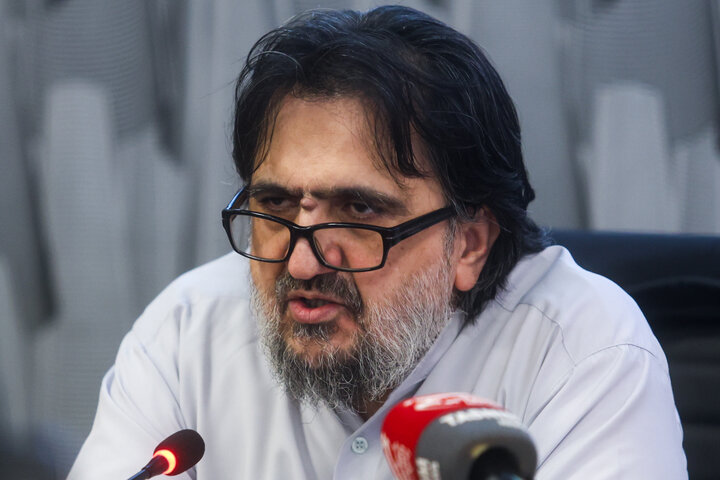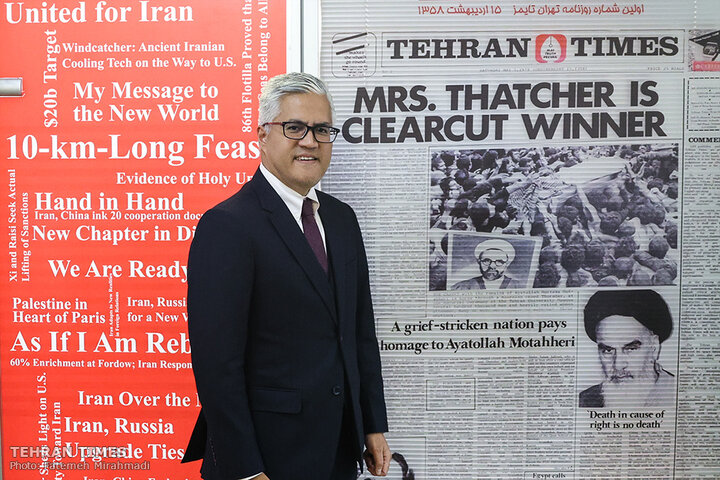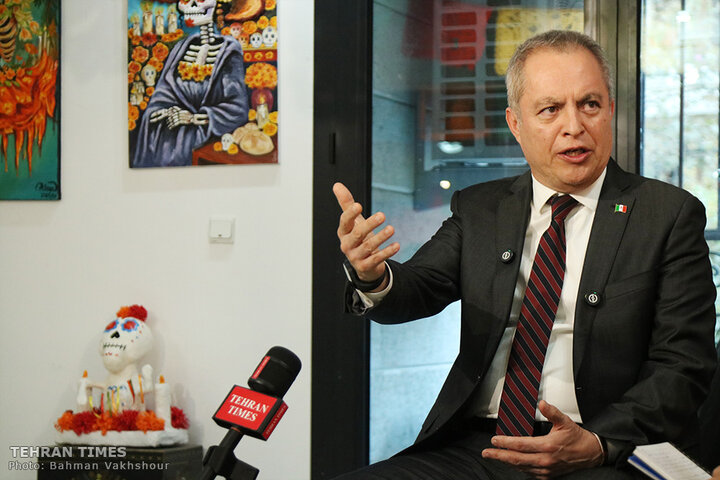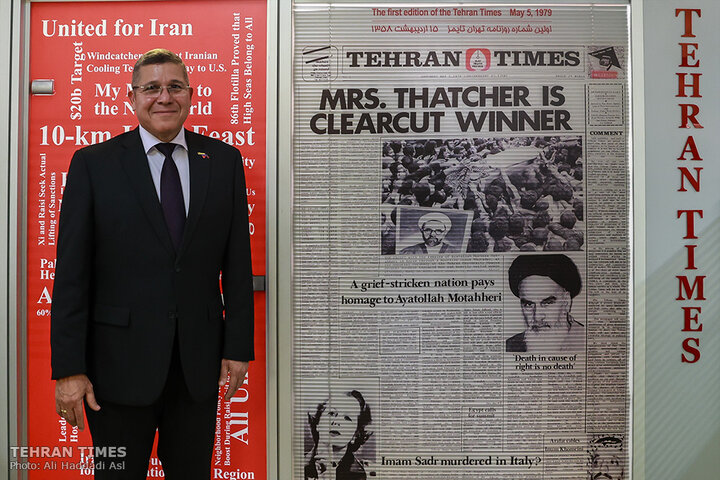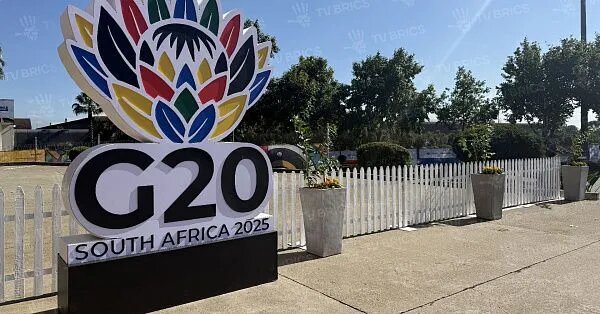-
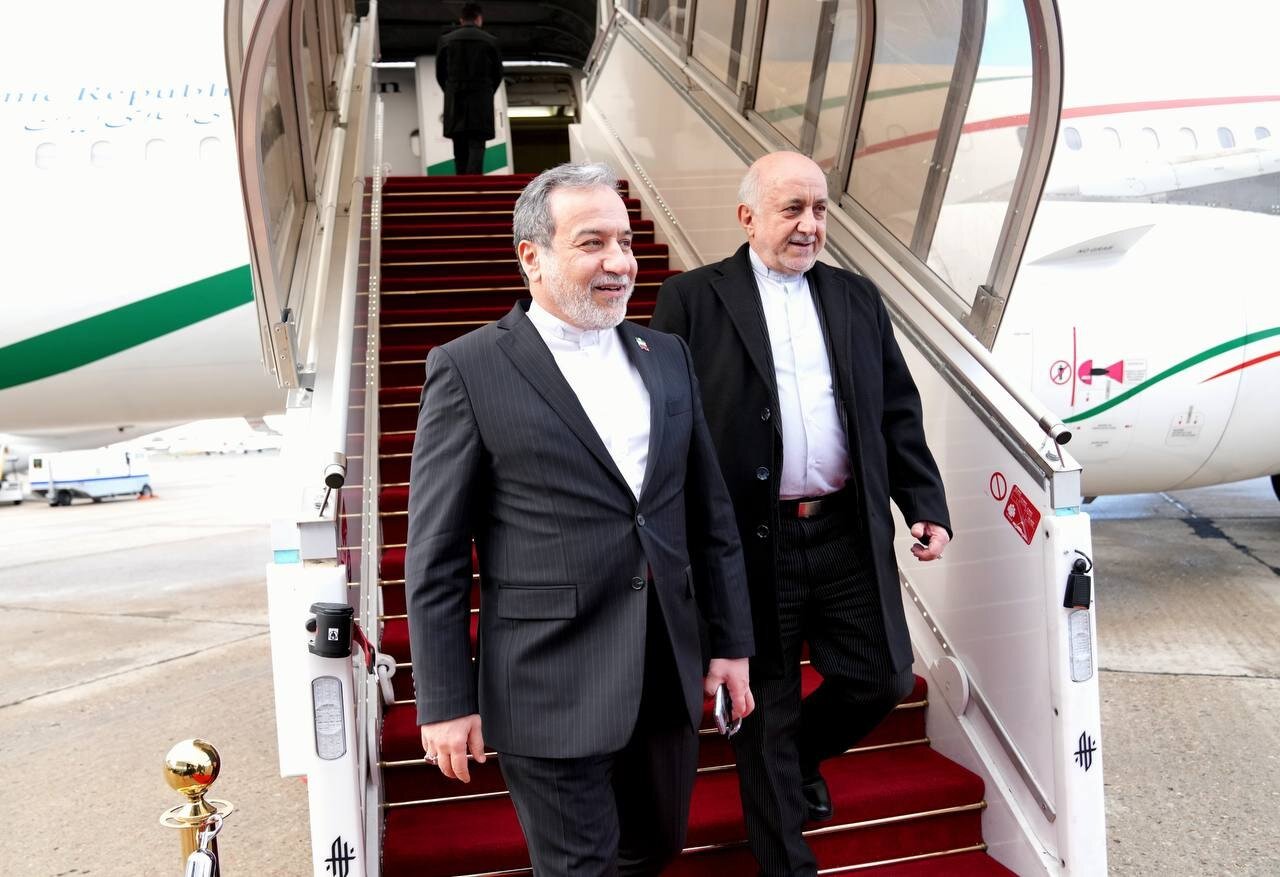 2025-11-26 21:41
2025-11-26 21:41
By Mona Hojat Ansari
Iran's active diplomacy despite West's bad faith
Araghchi arrives in Paris for discussions on regional issues, bilateral relations, and the nuclear challenge
TEHRAN – Iranian Foreign Minister Abbas Araghchi arrived in Paris on Wednesday, attempting diplomacy amidst a dangerously escalating crisis where his country and the wider region have been subjected to an unrelenting vise imposed by the West, fuelling a growing conviction across West Asia, after almost two years of failed diplomatic efforts, that a more heavy-handed response is required against the Europeans, the Americans, and their sponsored proxy, Israel.
-

By Shahrokh Saei
China’s pivotal role affirmed in Xi’s ‘Palestinians governing Palestine’ message
TEHRAN – Chinese President Xi Jinping’s remarks on the International Day of Solidarity with the Palestinian People highlight China’s constructive role in Middle Eastern diplomacy.
-

By Sondoss Al Asaad
The unfailing reservoir behind Hezbollah
BEIRUT — For decades, the United States and Israel have repeatedly wagered that relentless pressure would erode the resolve of those loyal to the Resistance.
-
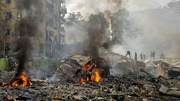
By Sahar Dadjoo
Israel’s Beirut strike exposes collapse of international law, Lebanese analyst warns
Adnan Alameh says UN and global powers have failed to enforce the truce agreement, leaving Lebanon vulnerable to repeated raids
TEHRAN – The recent Israeli strike on Beirut nearly a year after the ceasefire with Hezbollah has raised urgent questions about the effectiveness of international law and the enforcement of UN resolutions in Lebanon. For Adnan Alameh, a Lebanese political analyst, the incident reflects not only Israel’s strategic ambitions but also the broader failure of the international community to restrain violations of sovereignty.
-
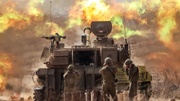
By Silvina Pachelo
Exported war: How Israel turned Latin America into its silent laboratory
BUENOS AIRES — In a world increasingly fragmented, exports are no longer limited to soy, lithium, or energy. Israel, home to one of the planet’s most advanced military industries, exports something different: security. A word that, in practice, encompasses surveillance technologies, population control, and conflict management developed in contexts of occupation and permanent tension.
-

IRGC seizes haul of military devices belonging to terrorists
TEHRAN – The Islamic Republic of Iran’s Guards Corps (IRGC) has confiscated large quantities of anti-security items from “anti-revolutionary groups”, a term the military uses to describe anti-Iran elements funded by Israel or the West.
Politics
-
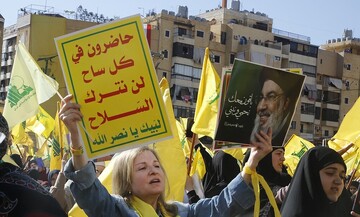
Hezbollah now ‘more vital than ever’, says Leader's aide following Israeli truce violations
TEHRAN – Ali Akbar Velayati, Senior Advisor to the Leader of the Islamic Revolution on International Affairs, said Israel’s latest attacks on Lebanon demonstrate more clearly than ever the vital role of Hezbollah in safeguarding the country’s security and territorial integrity.
-

Iran’s deputy FM hails close Iran-Tajikistan cooperation after Dushanbe visit
Iranian Deputy Foreign Minister for Political Affairs Majid Takht-Ravanchi says Iran and Tajikistan enjoy strong bonds of friendship rooted in deep cultural and historical commonalities, and that both sides are determined to build on the shared foundations to further enhance mutual ties.
-
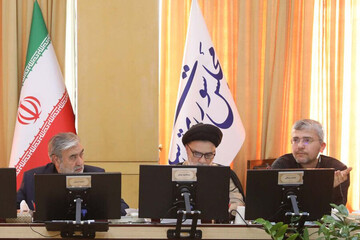
Parliament committee reviews anti-infiltration bill, approves amended clauses
TEHRAN – The spokesperson for the Iranian Parliament’s National Security and Foreign Policy Committee said the committee has reviewed the “Bill to Counter Foreign Infiltration” in a session attended by representatives from key security agencies, approving several amended provisions.
Sports
-

Esteghlal, Al Wasl share spoils in 2025/26 ACL Two
TEHRAN - Al Wasl earned a hard-fought 1-1 draw with Esteghlal on Wednesday to book their berth in the Round of 16 of the AFC Champions League Two 2025/26.
-

Iran beat Panama at 2025 Futsal Women’s World Cup
TEHRAN - Iran bounced back into contention at the FIFA Futsal Women’s World Cup Philippines 2025 after securing a 6-2 win against Panama on Wednesday.
-

Iran held by Lebanon in AFC U17 Asian Cup 2026 Qualifiers
TEHRAN - Lebanon fought back to secure a 1-1 draw with Iran in their AFC U17 Asian Cup Saudi Arabia 2026 Qualifiers Group D tie on Wednesday.
Culture
-
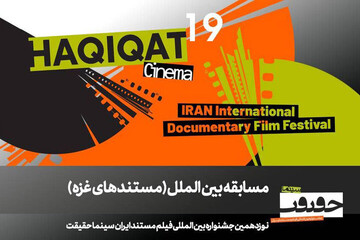
19th Cinema Verite reveals line-up for Gaza Competition section
TEHRAN – The 19th Iran International Documentary Film Festival “Cinema Verite” has announced the line-up for the Gaza Competition section.
-
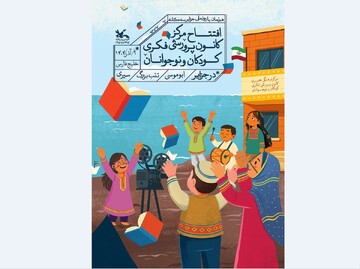
New cultural facilities to open on Iran’s strategic islands, enhancing youth engagement
TEHRAN- Two new cultural and artistic centers along with a cinema hall of Iran's Institute for Intellectual Development of Children and Young Adults – Kanoon are set to open simultaneously on November 30, coinciding with the Persian Gulf Trio Islands National Day.
-

Iranian short film “Sheep” wins at Asian World Film Festival
TEHRAN – Iranian short film “Sheep,” written, directed, and produced by Hadi Babaeifar, won a prize at the 11th annual Asian World Film Festival (AWFF), which was held in California, the U.S.
Economy
-
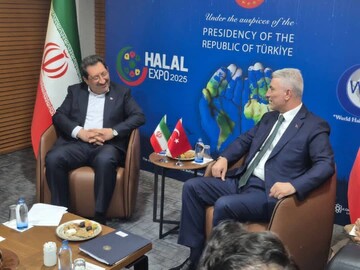
Iran, Turkey emphasize expansion of trade ties
TEHRAN- Iran’s minister of industry, mining, and trade, during a meeting with the minister of trade of turkey, emphasized the need to remove obstacles to the development of Tehran-Ankara economic cooperation and announced a $2 billion increase in the value of trade exchanges next year, reaching a total of $10 billion in trade between the two countries.
-
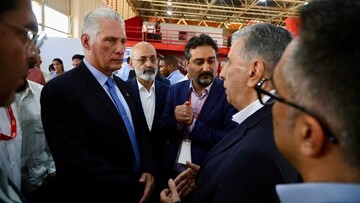
Cuban president invites Iranian food brands to Cuban chain stores
TEHRAN- During a visit to Iran's pavilion at the Havana International Fair (FIHAV 2025), the president of Cuba invited Iranian food industry brands to enter Cuban chain stores.
-
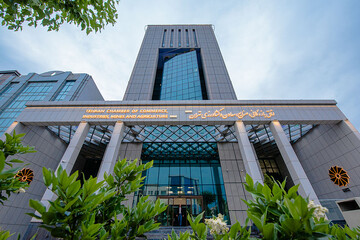
Private sector ready to play a more active role in Iran-China commercial co-op: TCCIMA head
TEHRAN- Mahmoud Najafi Arab, the Head of the Tehran Chamber of Commerce, Industries, Mines, and Agriculture (TCCIMA), in a letter to Abbas Araghchi, the Minister of Foreign Affairs, while presenting a report on the achievements of the Tehran Chamber's delegation's visit to the Shanghai exhibition in China and the side meetings of this delegation, declared readiness to play an active role in organizing and facilitating the relations between the private sectors of the two countries.
Society
-

DOE announces new phase of wetlands conservation project
TEHRAN – The Department of Environment (DOE) has announced the beginning of a new phase of the wetlands conservation project (2025 –2028) to strengthen sustainable livelihoods and alleviate pressure on the wetlands ecosystem.
-
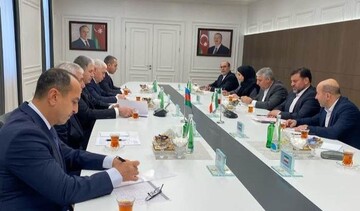
Tehran, Baku agree to deepen counter-narcotics co-op
TEHEAN – Iran’s anti-narcotics police chief, Iraj Kakavand, and Azerbaijan’s Interior Minister, Vilayat Suleyman oglu Eyvazov, have agreed to promote collaborations in the fight against narcotics.
-
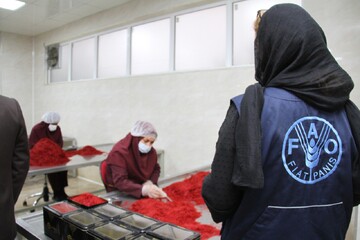
FAO, Iran take new step toward innovation and quality integrity in saffron value chain
TEHRAN - The Food and Agriculture Organization of the United Nations (FAO), in collaboration with the Ministry of Agriculture-Jahad (MAJ) and the Iranian Society for Horticultural Sciences (IrSHS), held a National Workshop on Saffron Quality Integrity and Value Chain Development.
Tourism
-
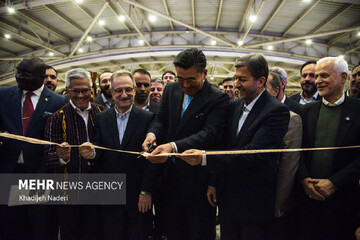
Isfahan opens intl. tourism exhibition, officials say event marks new phase in sector
TEHRAN – Officials in Iran’s central province of Isfahan said on Tuesday that the 15th Isfahan International Exhibition of Tourism, Handicrafts and Hoteling would help launch a new phase in the region’s tourism development.
-
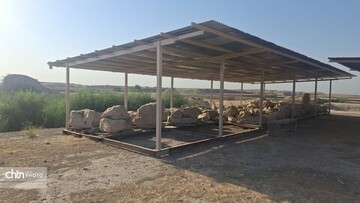
UNESCO-listed Susa completes protection work on 253 Apadana Palace remains
TEHRAN – Conservation teams in the UNESCO-registered Susa have completed a project to safeguard and protect 253 architectural remains from the Achaemenid-era Apadana Palace, the head of the Susa World Heritage base said on Tuesday.
-
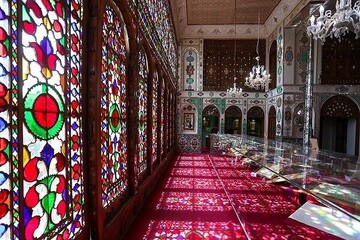
National Museum to host conference on human living spaces
TEHRAN – The National Museum of Iran is scheduled to hold a national conference on human living spaces on Feb. 15, 2026.
International
-

China’s pivotal role affirmed in Xi’s ‘Palestinians governing Palestine’ message
TEHRAN – Chinese President Xi Jinping’s remarks on the International Day of Solidarity with the Palestinian People highlight China’s constructive role in Middle Eastern diplomacy.
-

The unfailing reservoir behind Hezbollah
BEIRUT — For decades, the United States and Israel have repeatedly wagered that relentless pressure would erode the resolve of those loyal to the Resistance.
-

Exported war: How Israel turned Latin America into its silent laboratory
BUENOS AIRES — In a world increasingly fragmented, exports are no longer limited to soy, lithium, or energy. Israel, home to one of the planet’s most advanced military industries, exports something different: security. A word that, in practice, encompasses surveillance technologies, population control, and conflict management developed in contexts of occupation and permanent tension.
Video Comment
-

Academics analyze social dimensions of Resistance in Tehran conference
-
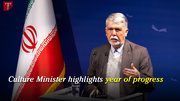
Culture minister highlights year of progress in arts, global image enhancement
-
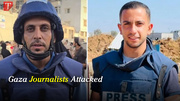
Gazan Journalists attacked by Israel
-
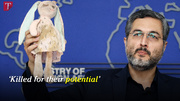
Brother of Iranian scientist murdered in Israeli strike speaks out
-
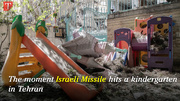
Footage shows Israel hit a kindergarten in Tehran
Most Viewed
-
Iran in Pot 2 for 2026 FIFA World Cup draw
-
Iranian Navy to unveil new equipment in coming days: Navy commander
-
The protected criminal syndicate
-
Hezbollah reshaping the battlefield before the fight
-
Iran's active diplomacy despite West's bad faith
-
IRGC seizes haul of military devices belonging to terrorists
-
Pakistan pledges diplomatic backing for Iran during top security official’s visit to Islamabad
-
Exported war: How Israel turned Latin America into its silent laboratory
-
IRGC forces bust terror group in southeast Iran
-
Why Are Investors in 2025 Moving from Dubai and Cyprus to Alanya, Turkey?
-
China’s pivotal role affirmed in Xi’s ‘Palestinians governing Palestine’ message
-
The unfailing reservoir behind Hezbollah
-
Hezbollah now ‘more vital than ever’, says Leader's aide following Israeli truce violations
-
Private sector ready to play a more active role in Iran-China commercial co-op: TCCIMA head
-
Israel’s Beirut strike exposes collapse of international law, Lebanese analyst warns
